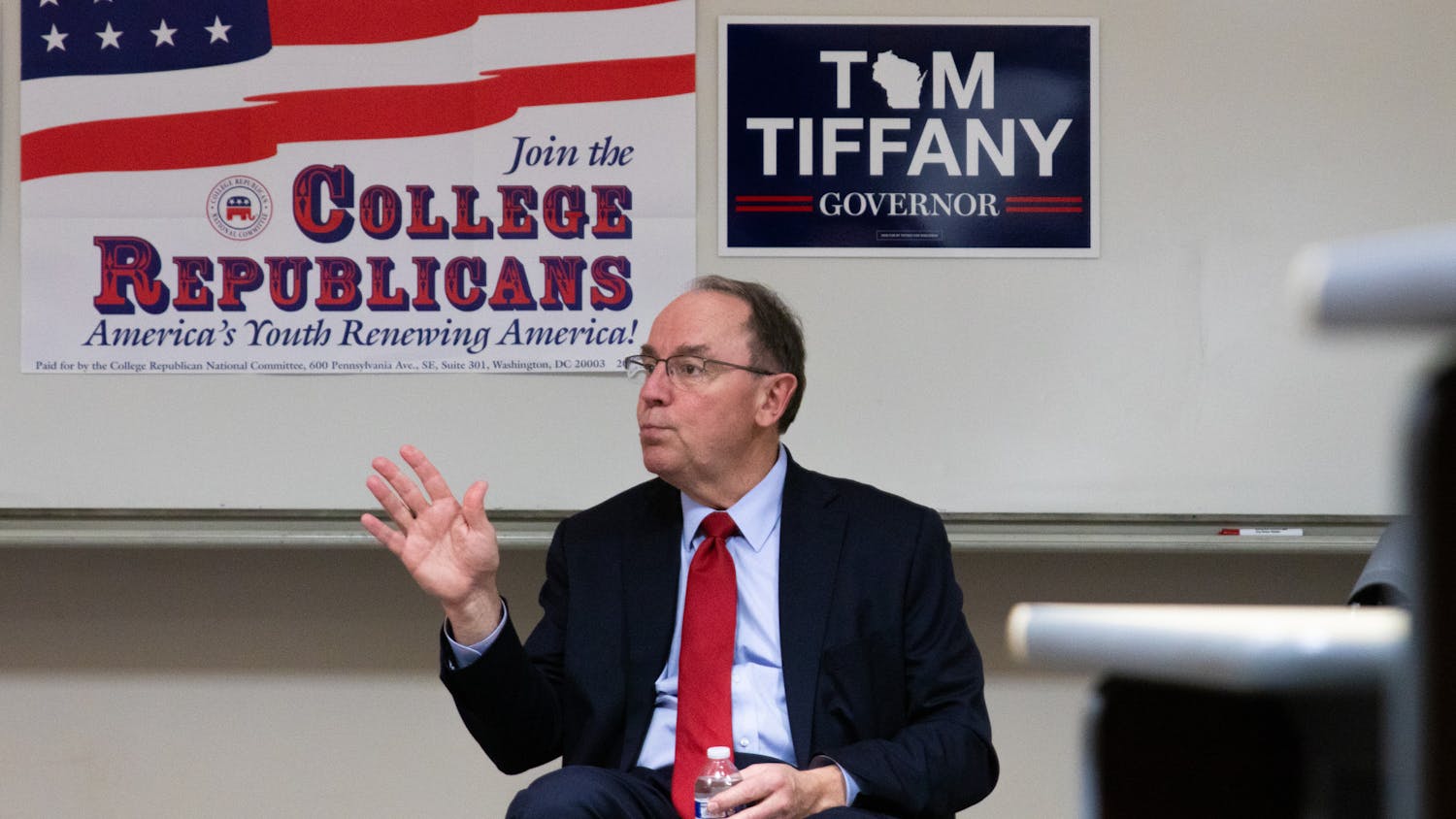In the 1960s, UW-Madison gained a national reputation as an activist powder keg following its fervent protests of the Vietnam War. Students marched with placards, occupied campus buildings and burned their draft cards amid chants of \hell no, we won't go."" ""The intellectual ferment was just crackling in the air. Almost everyone was involved in some way or another,"" said Chancellor John Wiley, who attended UW-Madison as an undergraduate from 1964 to 1968. ""I remember every night hundreds of students gathered around TVs in the dorm lounges and the union lounges'the social event was to watch the CBS evening news, to get the latest from Vietnam and to jeer [Secretary of State] Dean Rusk and President Johnson.""
That intoxicating climate may have made for a tough act to follow. Today, UW-Madison still holds a reputation for being politically active, but that reputation falters under criticism from those who think current students do not live up to the campus' legacy. At the same time, others praise the student body's dedication to social change.
This marks the first year UW-Madison has made the Princeton Review Books' list of ""most politically active campuses"" since the list began in 1992. The university ranked seventh out of 20 schools listed.
Yet according to Jeanne Krier of Princeton Review Books, the ranking is based solely on national respondents' subjective answers to one question on a survey, which implies UW-Madison's reputation as an activist campus.
UW-Madison sophomore Jess Herold shared the perception of UW-Madison as an activist community before coming here, but found it to be less active then she had expected. Herold said she tried to join some student organizations, which ""just bitched about things and never took any action.""
John Laffler, a UW-Madison senior who, like Herold, came to Madison partly because of its activist reputation, also said he was disappointed with what he actually found.
""Most students don't give a fuck,"" he said.
Laffler came here four years ago during the height of campus anti-sweatshop activism. Around that time, he participated in an impromptu tuition protest march to the Capitol.
""It had everything a good protest needs-numbers, commitment, it was extemporaneous,"" he said. Since then, Laffler said, activism on campus has gone done significantly.
But people like Laffler may overlook subtler, less traditional forms of activism. Students in some activist organizations said they have not become more apathetic. Rather, they use different tactics than their showy predecessors did.
""Activism on campus today is a little less visible than it has been in the past, but the general concern of students about issues that tend to be labeled as activist is just as high as ever,"" said Kurt Ellison, a member of InfoShop, which provides literature about activist issues. ""People are as concerned, but they're working on issues through educational goals or through groups that have a little less visible presence.""
Former ASM Chair Jessica Miller said she agreed that UW-Madison is turning out a new breed of activists.
""You don't see the protests you saw in the '60s or even five years ago,"" she said. ""Students are learning to push [issues] in different ways.""
The largest visible presence campus activists have given to an issue in recent years was the anti-sweatshop sit-ins on Bascom Hill in February 2000. Students who wanted the university to join the Worker's Rights Consortium occupied Bascom Hall for 89 hours until then-Chancellor David Ward complied with their requests
Ellison, who participated in the sit-ins, said he thought they represented the kind of relatively black and white issue that draws in people who would not normally fight for a cause.
""A lot of people feel that worker's rights are universal rights. There's not a lot of debate on that,"" he said.
Since then, however, it has been difficult to pinpoint a single issue that has unified students in such a visible way, causing them to rally as they did during the Vietnam War.
But former Madison Mayor Paul Soglin, who was also a key figure in the campus' anti-Vietnam movement, said it is foolish to even try to compare campus activists today to those of his generation.
""It's different times, different eras, different issues. No issue gripped people as much as Vietnam. A lot of nonpolitical students [today], thrown into the times of the '60s, they too would have been politically active,"" Soglin said.
However, some think the escalating tension between the United States and Iraq could become the next galvanizing issue for campus activists.
""Among my colleagues here and at other universities, people expect that if [the United States] were to take unilateral action against Iraq, there would be considerable student protests,"" Wiley said.
Ellison agreed with Wiley's assessment.
""Traditionally, this campus supports anti-war movements. How this administration handles the situation with Iraq could have a definite effect on this campus,"" he said.





